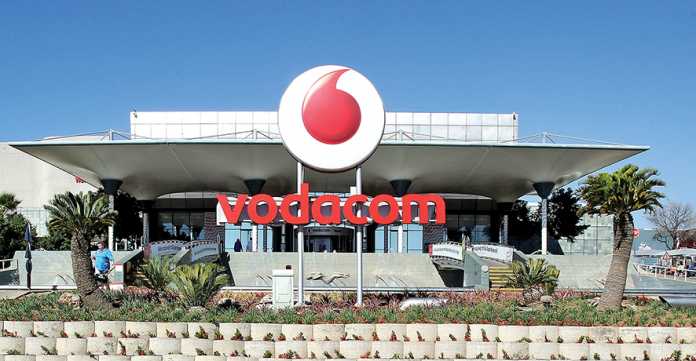The country’s largest mobile network firm, Vodacom, is heading to the Constitutional Court (ConCourt) to appeal a judgment that could see the company fork out billions of rands to “Please Call Me” inventor Nkosana Makate.
This comes after the Supreme Court of Appeal, in a scathing judgment on Tuesday, said Vodacom’s chief executive, Shameel Joosub, should finalise the determination of the money that should be awarded to the former staff member within 30 days.
“Vodacom notes the judgment of the Supreme Court of Appeal of South Africa in the case of Vodacom (Pty) Ltd v Makate (Please Call Me Matter), which was handed down on February 6, 2024. Vodacom is surprised and disappointed with the judgement and will bring an application for leave to appeal before the Constitutional Court of South Africa,” said Vodacom’s spokesperson, who preferred not to be named.
In 2020, Vodacom vehemently denied that it owed Makate R63-billion for the PCM.
This comes after an article in the Sowetan cited court papers before the high court in Pretoria in which former Vodacom accountant Teboho Motaung, in an affidavit, said Vodacom had set aside R63.4bn for Makate and had even processed invoices bearing his name while the matter was before the Constitutional Court.
The time value of money
In the judgment, judge Ashton Scheepers ruled: “The award made by the second respondent (Joosub) shall take into account the time value of money, calculated at an average inflation rate of 5%, from 1 March 2001 to 28 February 2019.
“The first respondent shall finalise his determination within 30 calendar days of the date of this order.
“The second respondent’s (Joosub) determination of reasonable compensation due to Mr. Kenneth Nkosana Makate arising from the Please Call Me Idea, dated January 9, 2019, is reviewed and set aside.
“It follows that this issue must be remitted to the CEO for him to determine reasonable compensation afresh.
“The parties do not object to remittal. In its submissions, Vodacom asked for such an order in the event of its appeal failing.
“Although Mr Makate sought in the high court alternative relief to the effect that the total revenue of the PCM product be determined by a new referee, he could have no objection to remittal to the CEO; the issue is one of pure calculation.
He, however, said Vodacom has been partially successful in its appeal.
“It demonstrated, save for the irregularity relating to the duration of the contract, that the high court erred in upholding all of Mr. Makate’s review grounds. However, Vodacom failed on the central issue: whether the CEO’s determination is unreasonable or patently inequitable.
Costs of appeal
There is therefore no reason why the costs of the appeal should not follow the result. “The parties agreed that the costs of three attorneys on appeal are warranted,” said Scheepers.
He ordered that Vodacom should pay the costs of appeal, including the costs of three counsel—two senior and one junior counsel.
“The matter is remitted to the second respondent [Joosub] for him to determine the amount of reasonable compensation due to the applicant, in accordance with the four models in his determination of January 9, 2019, solely on the basis that the second respondent would have awarded the applicant a contract for 18 years, commencing on March 1, 2001, and terminating on February 28, 2019.
The Supreme Court ruling brings a glimmer of hope that the almost 20-year-old case will be resolved.
On April 26, 2016, the Constitutional Court ordered Vodacom to commence negotiations in good faith with Makate to determine the reasonable compensation payable to him in terms of the agreement.
“In the event of the parties failing to agree on reasonable compensation, the matter must be submitted to Vodacom’s CEO for determination of the amount within a reasonable time.
Compensation for the product
Although this order was intended to bring the case to finality, it failed to achieve its purpose.
This saw Joosub award Makate compensation for the PCM product amounting to R47 million.
Disgruntled with the award, Makate instituted review proceedings in the high court.
The high court found in favour of Makate but remitted the determination of the amount of compensation to be paid to Makate to the CEO.



